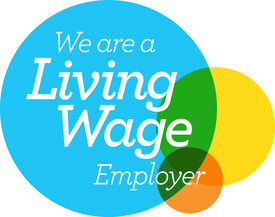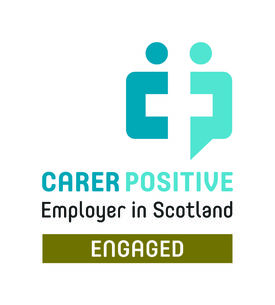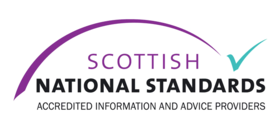Financial Capability = Financial Success
Date published: 15th November 2016Monday 14th November 2016 to Sunday 20th November 2016 is Financial Capability Week. This is a themed week with the aim of raising awareness of the importance of financial capability, what it means and the organisations involved in making the change.
Budgeting is an important component of financial success where everyone can benefit from budgeting tips and advice. It is not just for those with limited funds, budgeting helps you to get the most out of your money. With this we have come up with 10 handy tips for budgeting money and making it last til payday.
1. TAKE YOUR TIME AND PLAN IN ADVANCE
Planning ahead can make a significant difference when managing money. This can range from planning meals to weekend activities. Take your time and plan the best options which are the most cost effective. Through doing this method there may even be discounts for early bookings or vouchers available. This method gives structure and avoids the last minute trips which may be quite costly.
2. USE A BUDGET PLANNER
A Budget planner can be a very useful tool which can be found online.
The budget planner is free and easy to use. The tool allows you to input your income and outgoings and once it is completed you will be able to see analyses of the results. You will also receive personalised tips to help make the most out of your money. It can be quite eye opening seeing how much you actually spend.
3. KEEP A SPENDING DIARY
Putting the budget planner into practice! Some monthly expenses are always set but it is easy for other expenditures to rise and fall, like food & drink, leisure activities, gifts and clothing. Keeping a spending diary will highlight whether or not you are sticking to the budget planner. Small trips to the shops for bits and bobs can add up each month.
4. USING CASH RATHER THAN CARD
Contactless pay has its advantages and disadvantages. It has made paying for some goods and services “effortless”, however this increased use of cards takes our sense of “real” money away with most people using them without considering what their current balance is. This can then affect ongoing liabilities if you only have one account which does everything. Increased use of cards and contactless may result in entering an Overdraft without realising it. One potential solution is to go back to paying with cash. Taking out a weekly allowance helps you budget that money for the odd expenses that week like groceries, leisure activities, cigarettes, alcohol, travel, etc. Having money in your wallet/purse lets you know exactly how much you have to spend over that period of time and forces you to budget that money.
5. SHOPPING AROUND FOR THE RIGHT BANK ACCOUNT
Having a suitable bank account can help with regards to budgeting depending on the situation. There are a number of different accounts available with varying advantages. Shopping around for the best deals is advantageous with some banks offering sums of cash for switching to them. Some advance bank accounts have a monthly fee, however they could be saving you money in the long run with regards to cashback on certain household bills, as well as having various insurance cover included like mobile and travel insurance. There are also options like Jam Jar accounts where you can split your money into different pots. For example one pot would be for ongoing liabilities (rent, council tax, and household bills), another would be for savings and another pot would be for other expenditure. This therefore means essential bills would always be covered and other spending would be set aside for additional spending. There are also basic bank accounts which do not come with an overdraft. They keep the account simple where your wages can go in and money can be deposited or direct debits can be set up. This therefore means that when the balance is zero, no money will be available until some is paid in.
6. Borrowing/Saving with a Credit Union
Credit unions are not just beneficial for those who don’t qualify for high street borrowing, they are for everyone. Credit Unions give a sense of community where members of the Credit Union help each other out. A credit union can be beneficial if a person doesn’t have a large amount to save but wants to put a little bit away each month. Many Credit Unions offer Christmas Accounts where money can be saved throughout the year with the full balance being available to spend in November/December time. Credit Unions can also be used for borrowing and can be a much cheaper alternative to payday loans. They are more willing to make small loans, normally ranging from £50 to £3000, amounts that most banks won’t do. Interest rates tend to be on average of 12.7% APR with a maximum of 42.6% APR. Credit unions will normally require that savings have been made to the credit union beforehand to make sure people are committed to paying back the loan. Your nearest Credit Union can be found through this link.
7. Setting up Ongoing Liabilities to Come out Straight After Payday
If your pay day remains the same every month, it can be incredibly beneficial to set your ongoing liabilities to come out of your bank account as a direct debit a couple of days after payday. This means that your priority bills (mortgage/rent/fuel/council tax/car payments/insurances) will all be paid first. Therefore giving you peace of mind that your priority payments have been made first.
8. Cooking Meals in Advance and Freezing Them
Picking up last minute meals or ordering take-aways can be quite costly. One solution is to buy a large monthly shop and to cook a number of meals within the expiry dates. The idea is to cook these meals in bulk and freeze them for later on in the month. It is then a case of defrosting the meal during the day and it will be ready to heat up at tea time. Cooking in bulk keeps the costs of meals down and means there is normally meals waiting in the freezer when money is tight before payday.
9. Using Comparison Websites
Websites like Compare the Market and Money Saving Expert have become very prominent over the last couple of years. It is a good idea to compare the prices you are paying for certain services. This is especially the case with regards to insurances and fuel providers. Some people tend to stay with the same company because it’s easier and they see switching as very time consuming. Through comparing prices you may be saving money changing to a different company/supplier who is offering the same or similar cover. These sites tend to make the switching very easy.
10. Set Savings Goals
It is always appealing to purchase goods now and pay for them later. This however has a knock on effect where bigger payments are expected down the line and people may not budget to include this new expenditure. Instead of purchasing goods and paying for them later, it is a good idea to try and set a savings goal. Set up a standing order to a savings account or use a Terramundi Money Pot (Breakable Piggy Bank) to put an amount away each pay day in an attempt to save up for an expense. As a result it helps with budgeting and the goods will most likely be at a lower price as it has been paid for in full rather than paying it up with interest charges added on. There is a sense of accomplishment and reward using his method as a goal has been set and achieved.
If you would like more information about Financial Capability Week 2016, details can be found on their website.






